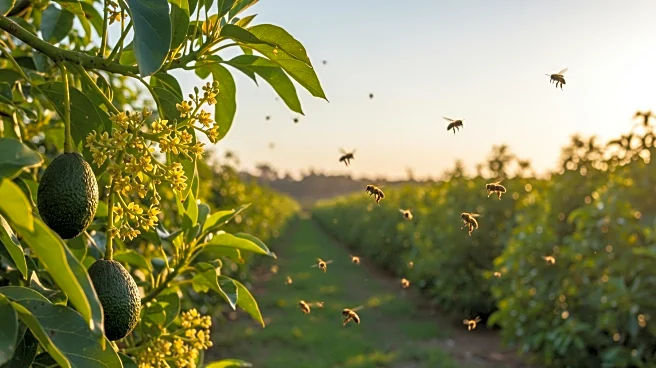What's Happening?
A study published in Nature reveals that environmental cues, rather than the quality of supplemented pollen, significantly influence the foraging behavior of honey bees during avocado pollination. Researchers conducted experiments in an avocado orchard, observing how bees responded to different feed sources. The study found that bees prioritize environmental cues such as floral diversity and visual stimuli over the nutritional quality of pollen when foraging. This behavior is crucial for successful avocado pollination, as bees need to visit both male and female flowers during specific times to ensure cross-pollination.
Why It's Important?
Understanding the factors that drive honey bee foraging behavior is vital for optimizing pollination services in agriculture. The study's findings highlight the importance of maintaining diverse and visually appealing floral environments to attract bees and enhance pollination efficiency. This knowledge can inform agricultural practices, helping farmers design orchards that support effective pollination and improve crop yields. Additionally, the research underscores the complex interactions between bees and their environment, contributing to broader ecological insights.
Beyond the Headlines
The study raises questions about the long-term sustainability of pollination services in monoculture settings, where floral diversity may be limited. It suggests that enhancing environmental cues could be a strategy to support bee populations and ensure reliable pollination. Furthermore, the findings may have implications for conservation efforts, as preserving diverse habitats could benefit both bees and agricultural productivity.









